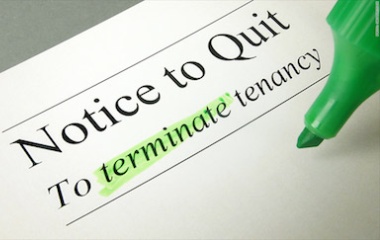
The difference between a smart businessperson and an ethically challenged one can be fine indeed - so fine that many will disagree on where to draw that line. “One rents a bull from his friend and loans it to another and the animal dies of natural causes…”(Bava Metzia 35b).
If introductory Talmud begins with yeush shelo meda’at (see here) it is quickly followed by an introduction to the arba shomrim, the four guardians; shomer chinam, shomer sachar, shomer socher and shomer shoel. A shomer chinam is one who agrees to watch an object as a favour to another. As he is not being paid he is exempt from payment should the object be lost, stolen or otherwise damaged. Only in cases of gross negligence[1] would he be liable to pay the value of the object. A shomer sachar is paid to watch an object and is responsible to pay the value of the object should it be lost or stolen. A shomer socher rents an object and has the same level of responsibility as a shomer sachar, namely responsibility for negligence, loss or theft but not for accidental damage. However, should a shomer shoel borrow an object without payment, he becomes responsible to the owner for any and all damages to the object regardless of how it might have been caused[2].
With different rules for different types of shomrim one can potentially take advantage of such distinctions to make a few dollars. The propriety of such is the subject of debate of our Mishna.
Reuven rents a bull from Shimon, thus becoming a shomer sachar who is exempt from ones, accidental damage done to the animal. He then turns around and lends the animal to Levi, making Levi a shomer shoel who is obligated to pay for any and all damages. While in Levi’s possession an accident happens and the animal dies - a death for which a shomer shoel must make payment but not a shomer sachar. The Sages rule that Reuven the shomer sachar takes an oath that the death was accidental and is exempt from payment.
Once that is taken care of, Reuven can turn around and demand that Levi pay him. After all, Levi is a shomer shoel who is obligated to pay for damages whatever the cause. And since Levi borrowed the animal from Reuven, it is Reuven whom he must compensate. This makes eminent sense, especially when we consider the Gemara’s comment that Shimon gave permission to Reuven to “sublet” his animal to others. Shimon’s agreement was with Reuven and Reuven is not responsible for accidental damage and thus has no obligation to Shimon. Reuven entered into a second agreement with Levi and under terms of that agreement, Levi must pay Shimon. For all we know Levi and Shimon have never met, and Levi could care less what agreement Reuven and Shimon had.
Despite the cogency of the above argument – faithfully following the two separate agreements, Rav Yossi finds this a violation of basic ethical norms. “How can we allow one to profit from the animal of his friend?” Rather, “the payment must be returned to the original owner.” One agreement or two, it makes little difference. Shimon gave his cow to Reuven and the cow died; and while Reuven may not be legally responsible, for him to turn around and personally profit from the cow’s death while leaving Shimon high and dry is just untenable. Don’t spout legal niceties to allow one to profit from the accidental death of another’s cow.
Though one of the principles of Jewish jurisprudence is “an individual and the majority, the law follows the majority” Jewish law has accepted the view of Rav Yossi as normative. One cannot take advantage of the property of others for one’s personal gain.
This principle has much application in the modern day economy. It prohibits a professional who leaves a firm from taking any action to entice clients away from the firm. These are clients whom the firm toiled to attain and whom the former employee met because of the firm. To take advantage of that would be in violation of the principle, “How can we allow one to profit from the animal of his friend?[3]” It is this principle that is behind the laws protecting a copyright holder from infringement, and why firms will spend oodles of money to protect that copyright. Similarly firms will often insist employees sign non-competition agreements so that even if the clients want to switch, they can’t.
The corporate world and business opportunities of today are vastly different – and that is an understatement – from those of the world of the Mishna. But such matters little as we seek to apply the unchanging moral principles to unchanged human nature.
[1] Drawing the line between lost and negligence or between stolen and an accident is not always easy to do, and undoubtedly would often be a matter of litigation.
[2] The exception being meita mechmat melacha, if the animal would die of the accumulated work over the years. In such a scenario one can hardly blame the shomer. That would be akin to having to pay for a borrowed car whose battery dies just at the time you borrow it. Though our Mishna refers to the animal dying “kdarcha”, of natural causes the assumption here is that it is due to an accident and not due to the workload over the years.
[3] There is nothing to prevent the client from giving their business to the new firm of their own volition, and no moral impediment to accepting such. Once again the line between active recruitment and passive acceptance is fine indeed.



